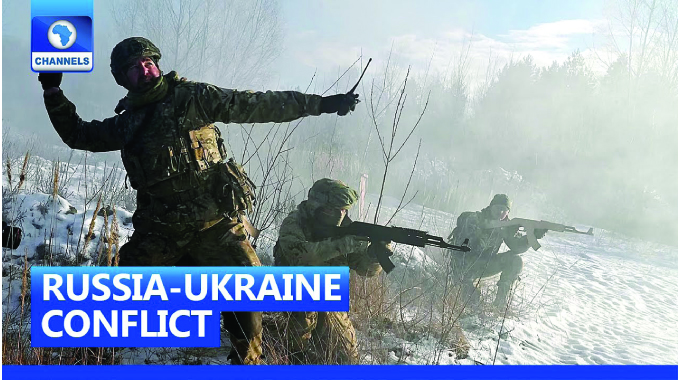Global security shouldn’t be decided by a few

Correspondent
In the past fortnight, there has been a global debate after the United States of America falsely accused South Africa of supplying Russia with weapons after a Russian civilian ship docked in South Africa.
America’s ambassador Reuben Brigety later made a kind of retraction but came short of apologising for the misleading remarks which had a lot of potential to do damage not just in South Africa but also in other countries such as Zimbabwe and the whole Southern African region.
The ambassador’s remarks led to panic in the economic sector, with the national currency of South Africa drastically losing value. This is because of a number of implications: first, if the ambassador’s remarks were true, it meant that South Africa stood to be sanctioned by the US and the Western countries for assisting Russia in its war with Ukraine. This could have devastating effects on the economy — one of Africa’s powerhouses. The South African economy is already struggling and on a downward spiral. On the other hand, capital is timid, and the issue is likely to haunt South Africa as investors look elsewhere where their money will be safe.
The worst case scenario about the ambassador’s false flag was that, the US and its Nato allies could use that as an excuse to attack South Africa militarily on the ostensible grounds of arming their declared enemy in the ongoing Russian-Ukraine war. Again, this would have catastrophic impact on South Africa, its neighbourhood and the whole continent.

Russia-Ukraine conflict
How is this situation to be understood? The US’s main gripe with South Africa is that the African country declared its neutrality on the ongoing Ukraine conflict. The West, for obvious reasons, seeks to claim the opposite as an excuse to punish South Africa for its stated stance but also its substantive good, historical relations with Russia. The US wants to punish South Africa for participating in joint military exercises with China and Russia in February. Ironically, South Africa has also participated in similar drills with the US, and have significant military cooperation — perhaps the most by an African country.
Yet, the US continues to push a cynical agenda. Last year, the same US raised an apparently false terror flag in October. The statement issued by the US embassy was met with anger in Pretoria as it was done without the consultation of South Africa’s authorities. It is not lost to observers that the US wants to destabilise South Africa and push it into its influence.
Why there is a need for new security mechanism
The main problem in the scenario narrated above is that currently, global security is in the hands of a few countries who have power to declare wars and put economic measures that can destabilise other countries. That, no doubt, has become an insecurity itself.
Western countries under the Nato bloc — armed with their imagined collective power and the super power status of America — have monopolised instruments of war and peace as well as supposed moral superiority. However, this is only self-serving and false. Maintaining the status quo is dangerous for the world in that it not only sustains hegemony of minority, but also that the world will be continuously engaged in wars as the bloc seeks to cow anyone into submission.
Therefore, the new Global Security Initiative (GSI) proposed by China offers a new direction to tackle global security challenges — in their many varied forms — and it is worth proposing that now is the time for African countries such as South Africa, Zimbabwe and other developing nations to lend weight to the initiative which will guarantee peace and security as a global good.
Introducing the concept, President Xi Jinping called on countries to adapt to the profoundly changing international landscape in the spirit of solidarity, and address the complex and intertwined security challenges with a win-win mindset.

Chinese President Xi Jinping
The GSI aims to eliminate the root causes of international conflicts, improve global security governance, encourage joint international efforts to bring more stability and certainty to a volatile and changing era, and promote durable peace and development in the world. It makes six commitments, among them underscoring the vision of common, comprehensive, cooperative and sustainable security provides conceptual guidance; respecting the sovereignty and territorial integrity of all countries and abiding by the purposes and principles of the UN Charter as a primary benchmark.
The GSI also advocates the recognition and promotion as legitimate security concerns of all countries seriously as an important principle.
What Nato and the US do is gravely against these principles as they seek global domination [not win-win scenario], which they should achieve at all costs. Particularly curious is how, in the example cited in the beginning of the article, the US ambassador is behaving in an incendiary manner to force a conflict and undermining the sovereignty of South Africa, while throwing away all diplomatic norms.
Unfortunately, his behaviour and bad intent have grave consequences for African countries in the neighbourhood, including Zimbabwe, and far beyond.









Comments